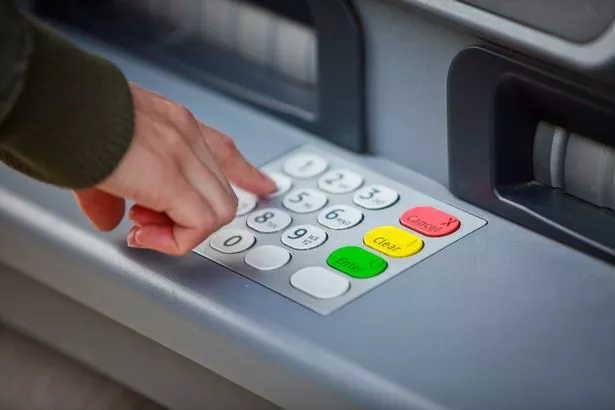Property fraud, where criminals illegally claim ownership of a property, poses a significant threat to homeowners. While not an everyday occurrence, the high potential rewards make it a lucrative venture for fraudsters. Understanding and combating this type of scam is crucial for safeguarding your most valuable asset.
The Reality of Title Fraud
Title fraud involves fraudsters gaining illegal control over a property’s title – the legal right to its ownership. This crime’s impact became starkly evident in the case of Rev Mike Hall in 2021. While away from his Luton home, Hall found that fraudsters had fraudulently acquired and sold his home. After a gruelling two-year legal battle, he regained ownership but at a high personal cost.
In November 2023, following a two-year legal battle, Mike successfully reclaimed his home. The Land Registry reinstated his name on the house title. He’s currently in discussions with the Land Registry for compensation due to the damage inflicted on his home over those two years. However, he won’t receive compensation for the stress endured or the lost rental income.
The Role of the Land Registry
The Land Registry, which maintains electronic title records in England and Wales, reports titles for 26 million properties, covering 88% of the area. Since 1990, all property sales, and since 1998, all mortgages, must register with the Land Registry. Scotland and Northern Ireland have similar bodies.
It has thwarted title theft attempts on properties worth £100 million in the past five years. Under the Land Registration Act 2002, its compensation scheme outlines conditions for rectifying mistakes and offering compensation.
How Fraudsters Operate
Fraudsters typically start with identity theft, assuming the identity of a property owner. They then attempt to gain control of the property title or secure a mortgage against it. The shift towards online conveyancing has made such frauds more feasible. The rewards are so enticing that fraudsters go to great lengths, including acquiring fake IDs and opening bank accounts in the victim’s name.
Before discarding old documents, make sure to shred them. This prevents anyone from stealing personal details like your name and address from your trash. Regularly monitor your credit report and bank statements. When relocating, promptly update your new address with your bank, credit card company, utility providers, TV licensing, and healthcare providers to prevent new occupants from accessing your personal information. Redirect your mail through the Royal Mail’s redirection service. While shopping online, stick to trusted, secure websites and stay alert to avoid fake websites and phishing emails.
Properties at High Risk of Fraud
Certain properties are more susceptible to title fraud. These include:
- Solely owned properties: Easier for fraudsters as there’s only one identity to impersonate.
- Mortgage-free properties: Fewer transaction checks mean higher vulnerability.
- Rented properties: Tenants might impersonate landlords.
- Absentee landlords: Distant landlords may overlook fraudulent activities.
- Unregistered properties: Lack of recorded title simplifies fraud.
- Properties with owners in care or deceased: Less oversight invites fraudulent activities.
- Properties on the market: Fraudsters might pose as buyers to gather information.
Steps to Protect Your Property
Register Your Property:
If unregistered, doing so with the Land Registry can offer a safety net of compensation in the event of title fraud. The process involves submitting proof of ownership and a fee based on property value.
Sign Up for Property Alerts:
The Land Registry’s free Property Alert service notifies you of any activity on your property. It’s an effective way to monitor any unusual transactions. Private companies like Title Guardian offer similar services.
Apply for a Form LL Restriction:
This restriction makes it challenging for fraudsters to mortgage or sell your property. While it adds a layer of protection, it also means more effort for you when selling or mortgaging your property.
Protect Yourself Against ID Theft:
Regularly monitor your credit report and bank statements. When relocating, promptly update your new address with your bank, credit card company, utility providers, TV licensing, and healthcare providers to prevent new occupants from accessing your personal information. Redirect your mail through the Royal Mail’s redirection service. While shopping online, stick to trusted, secure websites and stay alert to avoid fake websites and phishing emails.
Report Fraud:
If you suspect property fraud, contact the police and the Land Registry property fraud team immediately. Quick action can mitigate the impact of the scam.
Protecting Your Home: Practical Steps
- Register Your Property: Unregistered properties are more vulnerable. Registration provides a layer of safety.
- Sign Up for Alerts: Stay informed about any unusual activities related to your property.
- Apply for Form LL Restriction: This added security measure requires identity verification for transactions.
- Safeguard Your ID: Protect your identity to prevent fraudsters from using it against you.
- Report Any Suspicious Activity: Prompt reporting can prevent further damage and aid in investigations.
The growing trend of property fraud calls for increased awareness and proactive measures. Homeowners should stay informed and take steps to protect their properties. Protecting your property from fraud is essential in today’s world. By understanding the risks and taking preventive measures, you can safeguard your home against unscrupulous fraudsters.
If you think you may have been a victim of property fraud, act quickly and contact the police and the Land Registry property fraud team: email [email protected] Or phone 0300 006 7030, Monday to Friday, 8 am to 5 pm.



